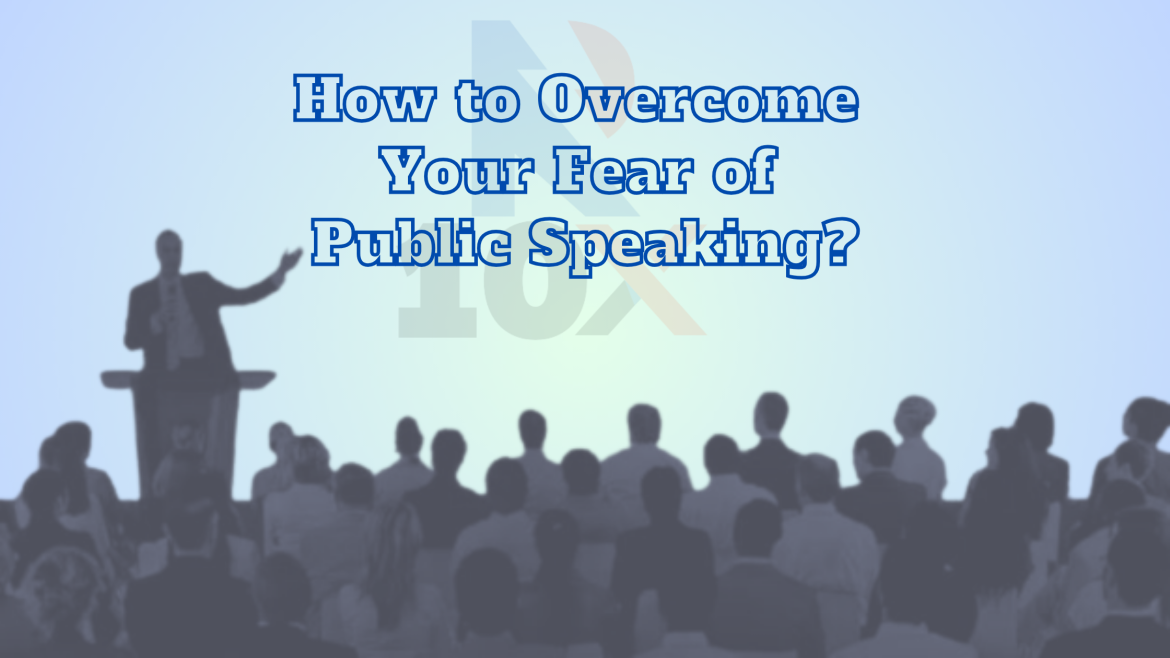
Many people experience speech anxieties when speaking in public, from mild nerves to overwhelming fear and panic. Luckily, it is possible to overcome your apprehension about public speaking by practicing public speaking more frequently and building up confidence.
Knowledge is power! Make sure to research and prepare well for your presentation by engaging in breathing exercises, visualization exercises, and positive thoughts to reduce nerves.
You have done it before
Fear of public speaking can be paralyzing for many individuals. They worry they’ll forget their material, make an error, or appear unprepared in front of an audience; some avoid presentations altogether while others accept assignments that require public speaking but experience high levels of anxiety during each presentation.
Fears associated with public speaking can often manifest into a speech anxiety disorder, manifested physically as shaking hands and an audible quivering voice, as well as more severe symptoms like shaking and an audible quivering that leads to panic attacks.
One of the best ways to overcome public speaking fear is to learn relaxation techniques and take public speaking classes. Another technique for combating negative thoughts can include making a list of your worries with accompanying evidence that counters those fears.
Know your material
Knowledge of your material inside and out is paramount to feeling at ease when speaking in front of an audience and connecting on a deeper level with them. Nervous speakers tend to speak quickly without taking enough time to consider what they’re saying, leading them to rush through their talk and appear disinterested or distant towards their audience. Furthermore, this interferes with breathing processes causing anxiety or feeling overwhelmed.
One-way people display their nervousness while speaking is by pacing or mincing while speaking. A slight amount of movement is okay, but too much could make your audience feel like they’re watching a tennis match! Make sure you find friendly faces in the crowd to provide positive feedback as you speak.
Remember, everyone experiences speech anxiety – even those who appear confident. What differentiates successful speakers from less successful ones are how they manage it; hopefully, the tips in this article can help you overcome public speaking anxiety and become an improved public speaker.
Print your speech and notes in large font

One study reports that public speaking phobia is the number one phobia in America, leading to mild nervousness to complete paralysis and panic. Anxiety may reach such extreme levels that the speaker becomes incapable of thinking clearly, struggles to breathe properly, dizzy, or queasy while communicating his or her message effectively to an audience.
Fearful speakers often attempt to hide their anxieties by avoiding eye contact with the audience and quickly running through their speech, hoping it will all end soon. According to David Carbonell, these attempts only make your fears worse; instead, he recommends accepting that anxiety exists and using coping techniques as ways of managing it.
Print your notes in large font to keep them straight, and opt for single-sided pages instead of double-sided to flip pages without accidentally confusing yourself before or during your presentation. Likewise, write page numbers at the top of each page to easily navigate between your notes.
Mental visualization

Public speaking can be intimidating for many. Some will seek to avoid it entirely while others might accept a speaking engagement if it will further their career or build relationships in their industry. Many business people who excel at their jobs despite being terrified of public speaking still regularly address audiences in front of an audience.
Fear of public speaking often stems from our fears of failing or making mistakes during a speech, so practicing mental visualization may help ease it. You could try visualizing yourself giving your speech, being successful, and witnessing audience reactions; for instance, walk into a lecture, be introduced by someone, give your speech, and observe their reception as they smile and applaud your success!
Narrate the scenario in your mind to connect the words to the actions, helping to remember what to do if speaking in person; top athletes often refer to taped footage for improvement purposes.
Dressing matters
The dress can help mask anxiety. Instead of showing your nervousness openly, try wearing well-fitted suits or dresses and using props like headsets or water bottles to conceal it. Wearing a smile to cover any trembling may also help. Also, look out for friendly faces within the crowd so that you could make eye touch and get hold of superb remarks.
Consider enrolling in a college-stage public speakme direction or taking one online at some point in your loose time, whether or not in character or online. Such classes can teach you how to structure and deliver speeches effectively while helping ease any anxiety about public speaking. Furthermore, practicing your speech before an audience member or close friend can give you confidence when delivering it in public.
Breathing exercises are an effective way to relax both body and mind before making presentations, helping reduce nerves while improving performance. Try breathing deeply into your abdomen rather than your chest to relax both. When used before speaking engagements this can significantly lower nerves while increasing performance levels.
Get in the mood

Public speaking can be one of the greatest sources of anxiety for many individuals, ranging from mild nerves to paralyzing fear and panic. Due to this fear, some may opt to forgo speaking opportunities altogether while others struggle through presentations with shaking hands and an uncertain voice.
Start small to overcome your speech anxiety: volunteer to give a brief presentation at work, or ask your boss for the chance to present an idea before your team. This will allow you to gain practice while remaining in low-pressure situations.
One way to reduce speech anxiety is to be realistic about your fears. Mandy, a businesswoman with speech anxiety, often writes down three of her greatest worries before each performance on paper:
She challenges each of her worries by asking “Is that likely?” or providing objective evidence why this thing won’t occur. This process helps disarm fear while simultaneously shifting focus onto a more positive message that will aid success.
Get comfortable with the venue
Many people experience some degree of nervousness or anxiety when speaking publicly, known as speech anxiety. It can range from mild discomfort to overwhelming fear. If severe speech anxiety interferes with daily life, therapy or medication could be recommended. Fear of public speaking often coincides with low self-confidence; this can be treated using psychotherapy, cognitive behavioral therapy, or medication.
Practice under conditions that closely mirror your performance is essential to getting comfortable with a speech and pinpointing any trouble spots. Furthermore, practicing under these circumstances allows you to identify any logistical hurdles ahead of time; for example, if there’s concern that audio equipment won’t function as planned then arrange a dry run with someone ahead of time.
People who fear public speaking often have specific fears related to public speaking, such as forgetting material or failing to impress an audience. If any such fears exist for you, identify any objective evidence supporting them or assess the likelihood they’ll occur and use this approach as a way out.
Stay hydrated

Anxiety before speaking can leave you with a dry mouth, which can be distracting for both yourself and your audience. Drinking room temperature water regularly before speeches can help alleviate this symptom – just make sure it does not end up belching out or creating sore throat issues! Additionally, consider keeping some citrus-flavored lozenges or gum handy just in case appetite begins to waver during an engagement. Speakers frequently experience public speaking anxiety because of a fear of appearing uncool or making mistakes during public speeches. To protect themselves, some may avoid speaking altogether or use speech anxiety techniques as an attempt to overcome their fears; unfortunately, such methods usually backfire and increase anxiety levels further.
Instead, speakers should harness their nervous energy and use it to enhance their delivery. Furthermore, they must stay true to themselves and connect with their audience on a personal level – remembering that even confident individuals get nervous when speaking before an audience.
Capture attention at the beginning and the end
Many people experience anxieties related to public speaking, which can be debilitating. Unfortunately, public speak me stays one of the maximum beneficial abilities for business people; with sufficient attempt and effort, it is possible to triumph over any fear associated with it.
Some audio systems try and relieve tension by avoiding looking immediately at the target audience, reminding themselves it’s going to soon be over, or talking quickly; however, such approaches often exacerbate the scenario by hastening talking and shallow respiration patterns that mimic fear responses, and by not making eye contact and growing connections with their audiences. However, such methods best serve to make matters worse.
Communicating information best through personal experiences is often the most powerful means of engaging an audience, and sharing your journey and the lessons learned is often more memorable than an abstract theory or statistic.
A great way to do this is by showing enthusiasm about the topic at hand while using gestures that disguise any shaking or trembling in your voice.
Project your voice well
Glossophobia, or the concern of public talking, is one of the most generic phobias.
This anxiety-inducing fear can range from slight nervousness to an almost paralyzing panic that causes hands to shake violently, voices to falter and faces to flush red with anger.
Preparation is key when it comes to public speaking fears; knowing your material so thoroughly that you don’t need to think about it and making sure all logistics are taken care of are key steps toward alleviating them. Create a checklist of all that needs doing and arrange a rehearsal with people who will ask tough questions or serve as impartial observers. Attaining peace before an important presentation requires finding ways to relax. Deep breathing exercises, meditation, and repeating positive affirmations all can help to lower anxiety levels and promote relaxation.
Fearful speakers tend to try and combat public speaking anxiety by fighting it rather than accepting it as part of the experience, which only serves to isolate themselves further and decrease their power as speakers. Fearful speakers might, for instance, avoid eye contact with audiences which will increase speech anxiety further.
Engage with the audience
Eye contact with your audience helps them feel that you are truly speaking to them and increases the chance that they’ll respond with nods, smiles, and other gestures that give your talk momentum and support.
Glossophobia (a fear of public speaking) causes individuals to worry that they will forget their material or fail to connect with their audience, leading them to try and hide their nervousness by avoiding eye contact with them and thus not knowing whether they’re engaged or not. Worries over being caught off-guard by something their audience says or does may also prompt them to speed through their talk quickly and rush it.
The key to successfully managing speech anxiety is practicing and preparing thoroughly for presentations, using relaxation techniques before speaking out, and accepting that even experienced public speakers feel nervous sometimes! By accepting your nerves and using them to your advantage, you may become one of those amazing public speakers we all admire so much; for instance, if your hands tend to shake uncontrollably when giving presentations, try using gestures or similar devices to disguise this.
Maintain good eye contact
Fearful speakers typically experience anxiety when starting their speech, with heart palpitations, sweaty palms, nausea, or shaking hands often being evident as soon as they open their mouths to speak. Unfortunately, these symptoms are difficult to hide.
Engaging the audience through eye contact is crucial when delivering presentations or speeches. Making eye contact shows them you are confident and interested in what they’re hearing; plus, it helps boost self-confidence and boost your sense of worthiness.
Deer in headlights syndrome can make an individual appear nervous. Establishing good eye contact during your presentation – particularly for opening and closing sections – is crucial.
Alternatively, to make eye contact with all members of the audience and reduce stress yourself, try the ‘triangle technique’ or look near someone’s eyes – like their nose, mouth, or chin.
People who fear public speaking can learn to manage their anxiety through careful preparation and by practicing in front of small groups of people. Some may use relaxation techniques and attend public speaking courses, while others might find psychiatric therapy beneficial in understanding and conquering their fears over time.
The jargon minefield
While using jargon among colleagues is acceptable, when speaking in front of an audience that may not share your background or knowledge base it can become confusing and lead them to lose interest or even fall asleep during your presentation.
If jargon must be used, make sure each term relates directly to your topic of discussion.
Many fearful speakers attempt to reduce speech anxiety by not thinking about their audience in hopes that this will lessen the nerves. Unfortunately, this only compounds their fears further. Instead, it would be wiser to focus on preparation and practicing techniques that will help you relax and remain confident during presentations. If this seems daunting or overwhelming for you, seek professional assistance who can teach the skills and strategies to overcome them – an excellent speech coach is invaluable for both professional advancement and personal confidence boost! Overcoming public speaking anxiety will open doors both professionally and personally!
Managing questions
Many people suffer from performance anxiety, an uncomfortable form of nervousness that often manifests itself when public speaking is involved. People experiencing severe performance anxiety that goes beyond public speaking may be diagnosed with social anxiety disorder and require cognitive behavioral therapy or medication as treatment options.
Speeches that draw from personal experience tend to be the most successful. Sharing an experience from your life makes audiences more relatable, which helps ease any nerves before or during presentations.
Preparing is key to reducing public speaking anxieties. Outlining, writing, and editing presentations can help build your confidence while giving the illusion that you’re in charge of what’s being presented.
Preparing for a speech involves practicing with friends and family members. Breathwork before a speech can also be useful for soothing nerves and making you more relaxed; alternatively, try meditation or repeating positive affirmations over and over.
Keep improving your public speaking skills
Most people experience some level of public speaking anxiety, from slight nerves to complete paralysis and panic. With time, however, it is possible to overcome this fear so you can deliver effective presentations both professionally and socially.
Everyone experiences them – including experienced speakers who seem calm and composed on stage! Prep and practice as much as possible before your performance; understand who your audience is as well as try relaxation techniques to reduce anxiety levels.
An unfortunate but common misstep when trying to hide one’s nervousness is avoiding eye contact with the audience to obscure any visible sign that they may be engaged or even interested in what you have to say. Doing this increases fear as it’s impossible for you to see whether they have taken in what is being presented and are engaged or even interested.
Mistake two is to focus on resisting your fear rather than channeling it towards a positive outlook, leading to negative thoughts and actions that only reinforce your fears. Instead, be the Speaker, not the Unspeaker, and take control of your anxieties – you’ll be amazed how much better your speaking goes when focused on serving the audience rather than on yourself!

